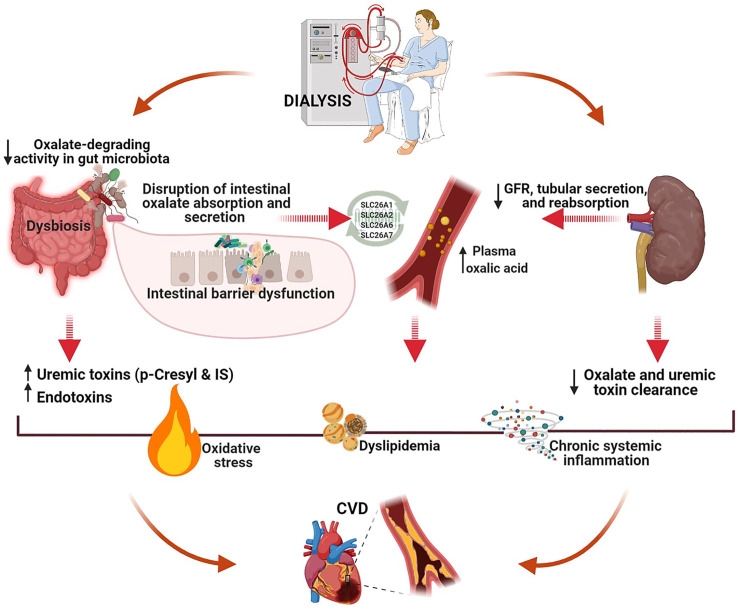FIGURE 1.
A proposed mechanism of the interaction between oxalate homeostasis and CVD in patients with end-stage renal disease (created with BioRender.com). Intestine plays a crucial role in oxalate homeostasis disruption in patients on dialysis. CKD-associated gut dysbiosis with commensal microbiota deficiency leads to decreased total fecal ODA, intestinal barrier dysfunction, and alteration of oxalate transport mechanisms in the intestinal epithelium (both secretion and absorption). Both uremia- and oxalate-induced molecular mechanisms initiated in the gut can activate oxidative stress, chronic inflammation, and atherogenesis, eventually resulting in CVD.

